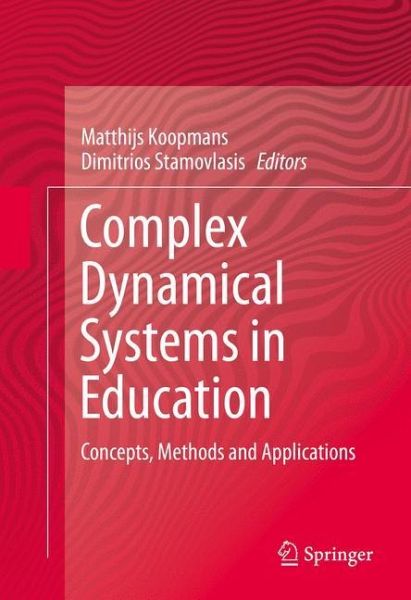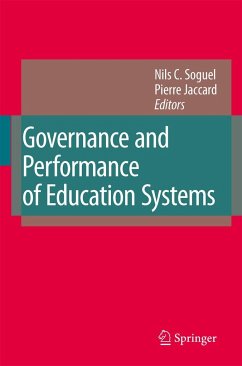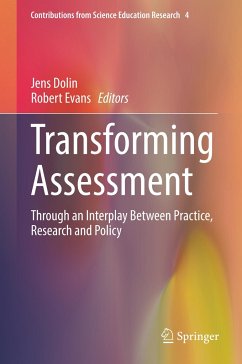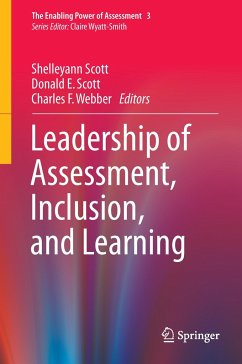
Complex Dynamical Systems in Education
Concepts, Methods and Applications
Herausgegeben: Koopmans, Matthijs; Stamovlasis, Dimitrios

PAYBACK Punkte
38 °P sammeln!
This book capitalizes on the developments in dynamical systems and education by presenting some of the most recent advances in this area in seventeen non-overlapping chapters. The first half of the book discusses the conceptual framework of complex dynamical systems and its applicability to educational processes. The second half presents a set of empirical studies that that illustrate the use of various research methodologies to investigate complex dynamical processes in education, and help the reader appreciate what we learn about dynamical processes in education from using these approaches.
This book capitalizes on the developments in dynamical systems and education by presenting some of the most recent advances in this area in seventeen non-overlapping chapters. The first half of the book discusses the conceptual framework of complex dynamical systems and its applicability to educational processes. The second half presents a set of empirical studies that that illustrate the use of various research methodologies to investigate complex dynamical processes in education, and help the reader appreciate what we learn about dynamical processes in education from using these approaches.














